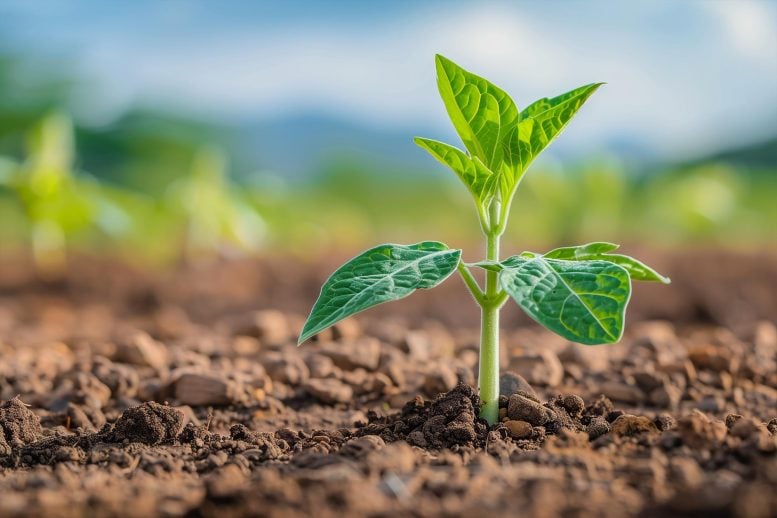
Unlocking the Future of Farming: MIT’s Groundbreaking Agricultural Innovations
As climate change continues to pose a threat to global food security, the Massachusetts Institute of Technology (MIT) is leading the charge in developing revolutionary agricultural technologies. From glowing plants that signal stress to microbial fertilizers and silk-coated seeds, MIT’s research is creating a new era of farming that could change the way we grow food and safeguard crops for the future.
Glowing Plants: A Game-Changer in Real-Time Crop Monitoring
One of MIT’s most fascinating innovations is the creation of genetically engineered glowing plants. By incorporating specialized genes, these plants emit a bioluminescent glow when under environmental stress, such as drought, disease, or extreme temperatures. This glowing feedback system allows farmers to identify stressed crops immediately, making it possible to take quick corrective actions such as adjusting irrigation, applying treatments, or relocating the plants.
Imagine walking through a field of crops and noticing a subtle, glowing light indicating trouble. This real-time visual cue offers farmers an efficient, low-tech way to monitor plant health without needing complex sensors or waiting for obvious signs of distress. This glowing technology promises to reduce crop loss, optimize resources, and enhance farm productivity.
Microbial Fertilizers: Harnessing Nature’s Power for Crop Resilience
MIT is also making strides with microbial fertilizers, which blend beneficial bacteria and fungi to promote soil health and improve nutrient uptake by plants. These microbial solutions can help crops thrive in challenging climates, making them more resilient to drought, pests, and diseases. In a future where these custom microbial blends can be sprayed on crops, farmers would be able to reduce dependency on synthetic fertilizers, contributing to more sustainable, eco-friendly farming practices.
This approach could revolutionize how we farm by encouraging a more natural, balanced relationship between plants and their environment. Microbial fertilizers offer a powerful tool to adapt farming practices to the unpredictable challenges posed by climate change, ensuring crops receive the nutrients they need while maintaining ecological balance.
Silk-Coated Seeds: Protecting Young Crops from Environmental Stress
In addition to glowing plants and microbial fertilizers, MIT is developing silk-based seed coatings that offer a novel solution to crop protection. These coatings can be infused with essential compounds such as drought-resistant polymers, insect-repelling agents, or even beneficial microbes. As seeds germinate and young plants grow, the coatings gradually release these protective elements, offering vital defense against environmental stressors.
Imagine planting crops with a built-in protective system, shielding young plants from pests, diseases, and extreme weather conditions. This innovation could significantly boost seedling survival rates, particularly in areas vulnerable to erratic weather or pests, ensuring stronger, healthier crops as they grow.
Pioneering the Future of Sustainable Farming
As the global population continues to rise and the effects of climate change intensify, the demand for sustainable, efficient farming methods is higher than ever. MIT’s pioneering research into glowing plants, microbial fertilizers, and silk-coated seeds represents a promising future for agriculture. These innovations offer the potential for more resilient, resource-efficient farming systems, capable of adapting to the challenges of a rapidly changing world.
The next frontier for MIT’s agricultural team is vast, with more groundbreaking discoveries on the horizon. The future of farming could be illuminated by glowing plants, nurtured by microbial fertilizers, and protected by silk-coated seeds, paving the way for a more sustainable and secure food system for generations to come.
Originally published on SciTech Daily.
